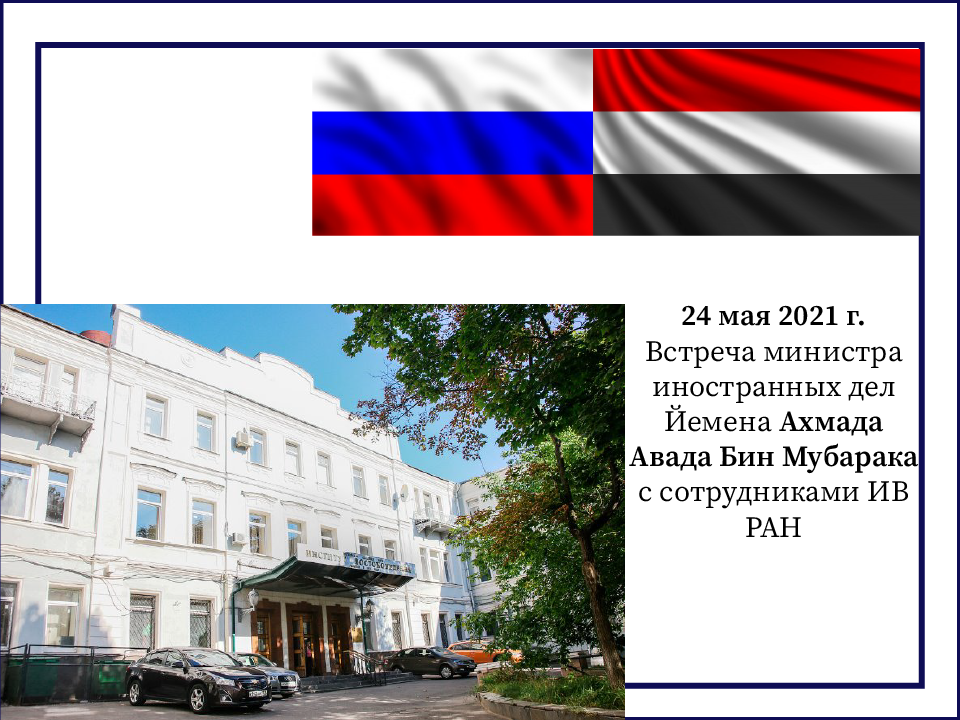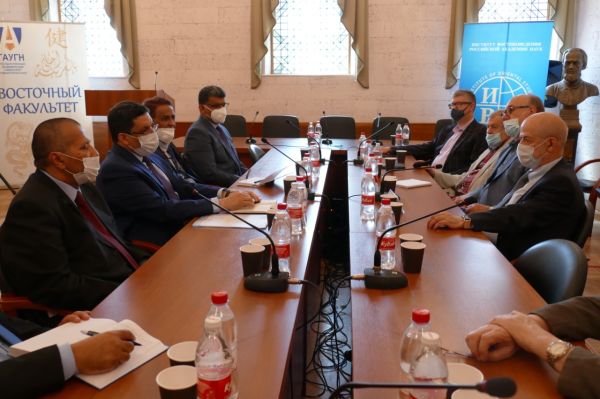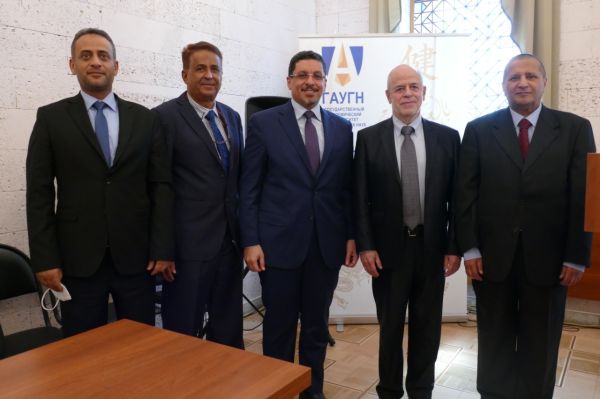News
25 мая 2021 года
Yemeni Foreign Minister Ahmad Awad Bin Mubarak Meets the IOS RAS Researchers

The Minister’s delegation and Ambassador of Yemen in Russia Ahmad Al Wahishi took part in the meeting. The discussion focused on current situation in the country, bilateral cooperation between Russian Federation and Yemen and prospects of academic contacts with the Institute of Oriental Studies.
Foreign Minister Ahmad bin Mubarak pointed out that he chose Moscow as a destination for his first foreign visit in office in order to honor the special relations that have been tying the two countries for a long time. He emphasized that this includes both North and South Yemen. Moreover, Mr. Bin Mubarak mentioned that his colleagues had recommended him to visit the Institute as a leading specialized center for Yemeni studies.
The Minister expressed appreciation for the prospects of Russian-Yemeni cooperation, told about pertinent issues of the crisis in the country and analyzed reconciliation initiatives provided by the US President J. Biden, UN Special Envoy in Yemen M. Griffits, US Special Envoy in Yemen T. Lenderking and Saudi Arabian politicians.
He said that in December 2020, the united technocratic government had been formed, however, its status in Aden was unstable due to the controversies between security structures of the country’s legitimate president Hadi and Southern Transitional Council that controls Aden.
According to the Minister, the government’s top priority is to stop the war that destroys economy, humanitarian situation and the very fabric of Yemeni society by the day.
In Mr. Bin Mubarak’s view, the core of the Yemeni crisis lies in internal controversies rather than in the geopolitical rivalry of regional powers, which is a secondary factor despite the importance of Saudi, Emirati and Iranian influence on the Yemeni actors.
Moreover, the Minister highlighted the problem of the South and expressed his hope that the national dialogue within the region would be held to create and consolidate the political platform of local actors.
One of the participants asked the Minister about the government’s national action plan in these conditions. He stated that in his opinion, federalization of Yemen, implementation of outcome documents of the 2013 National Dialogue and 2016 negotiations in Kuwait may be still relevant, despite the dramatic changes in the situation over the six years of war.
A large part of the Minister’s speech was dedicated to criticism towards the Houthi politics. Moreover, he analyzed the prospects of “second track” negotiations involving Iran that center around the crisis in Yemen.
In conclusion, the participants expressed their hope for enhancement of cooperation between Russia and Yemen, including the academic exchange between the countries.




